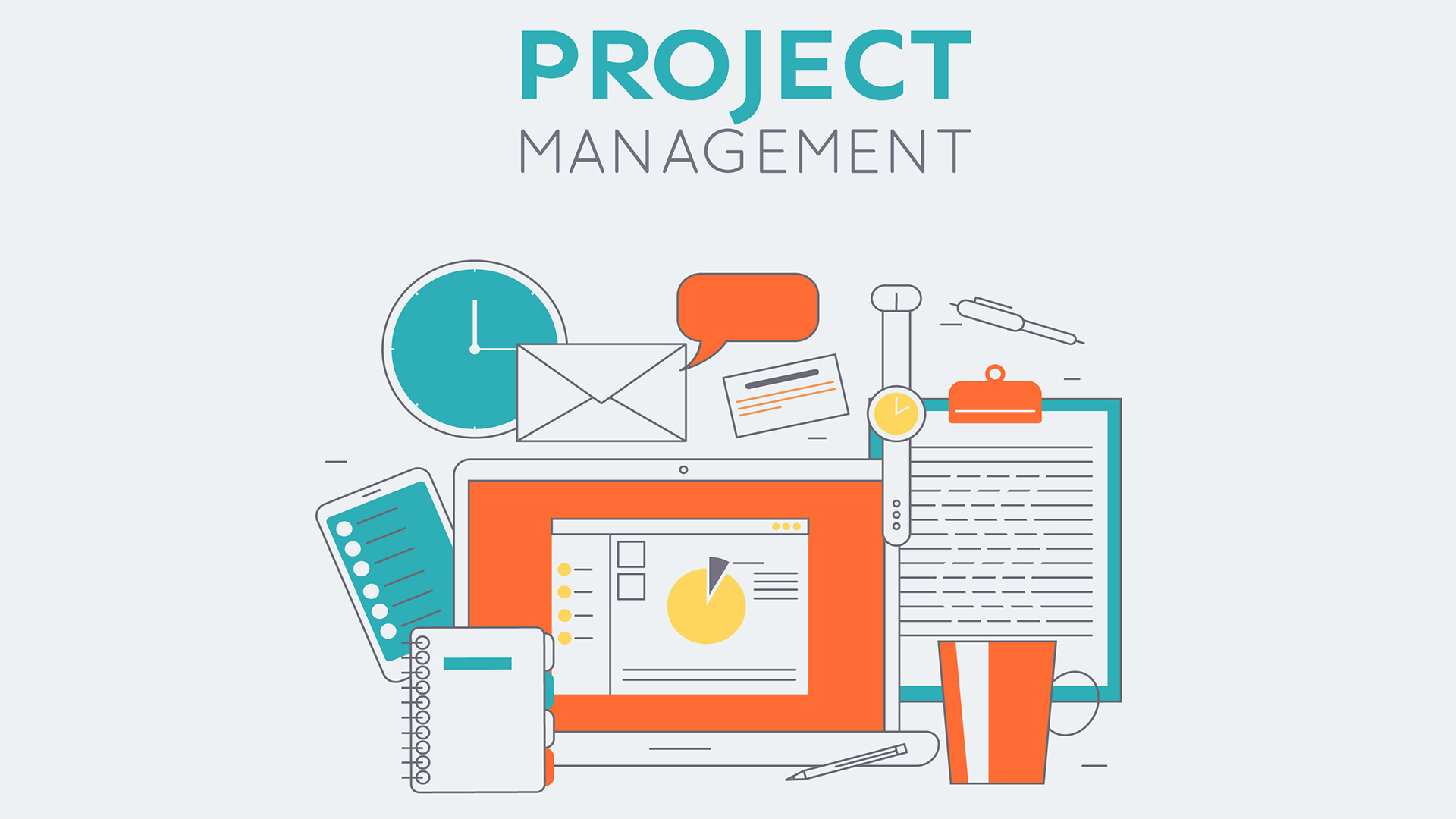
Become A Project Quality Management Expert
Course overview
What does “quality of project” mean?
The practical method of evaluating the caliber of project activities is called project quality management. This is done to make sure that the project output’s or deliverable’s intrinsic qualities meet the needs and meet the expectations of the client. Although “quality” may indicate perfection, it actually refers to a project’s ultimate qualities that meet stakeholders’ or customers’ expectations. Their expectations for the project must be met by the end product’s quality. As a result, quality might differ greatly amongst projects based on stakeholder agreement.
Who is in charge of the project’s quality?
Participants must ascertain and record the needs of the customer or stakeholder in order to guarantee that the anticipated quality standards are fulfilled. The project quality manager is in charge of this. They guarantee that the agreed-upon requirements and quality standards are fulfilled. This could also imply that while it is never acceptable to have a low-quality product of any grade, it is feasible to have a high-quality product of low grade.
Project management and contemporary quality management go hand in hand. Delivering high-quality goods and services on a regular basis is the process of quality management, not a single event. Until the required quality is attained, the process of monitoring quality, changing procedures, and again putting in place the proper controls must be repeated.
Professionals will attempt to study and comprehend the basic ideas and understanding of quality planning and its significance in project management through this Training Bee training course. By enrolling in this course, you will obtain comprehensive knowledge and information on all the topics required to comprehend project quality management and operate at your best. It will outline the best practices that businesses are utilizing today and offer you a view on the success factors and tenets of excellent planning. You will be able to recognize the necessary personnel, tools, and business processes that are necessary to guarantee an effective and successful demand planning operation.
Introduction
A crucial component of project management is project quality management, which is concerned with making sure the project complies with stakeholders’ needs and established standards. A methodical technique to organizing, carrying out, and overseeing project operations to make sure they adhere to set quality standards is known as quality management.
The process of project quality management is continuous and iterative, spanning the whole project life cycle. It is crucial to meeting or beyond stakeholders’ expectations in order to achieve results that make a project successful.
We are The Training Bee, a global training and education firm providing services in many countries. We are specialized in capacity building and talent development solutions for individuals and organizations, with our highly customized programs and training sessions.
Learning Objectives
Upon completing Project Quality Management, participants will be able to:
- Recognize the fundamentals of project quality and learn how to include quality control throughout the whole project life cycle.
- Recognize and become acquainted with the procedures for evaluating the organization’s present quality capabilities and setting benchmarks to raise the bar for quality, so that projects will fulfill predetermined requirements.
- To assess performance in relation to predetermined benchmarks and goals in order to enhance the quality of the services and products offered to members, consumers, and stakeholders.
- To determine the suitable resources required in order to maintain the quality management program
- To accomplish and maintain accreditation and any other certification, as well as to make sure that all regulatory criteria are followed.
- To leverage project quality control technologies to create monitoring dashboards.
Our Unique Training Methodology
This interactive course comprises the following training methods:
- Journaling – This consists of setting a timer and letting your thoughts flow, unedited and unscripted recording events, ideas, and thoughts over a while, related to the topic.
- Social learning – Information and expertise exchanged amongst peers via computer-based technologies and interactive conversations including Blogging, instant messaging, and forums for debate in groups.
- Project-based learning
- Mind mapping and brainstorming – A session will be carried out between participants to uncover unique ideas, thoughts, and opinions having a quality discussion.
- Interactive sessions – The course will use informative lectures to introduce key concepts and theories related to the topic.
- Presentations – Participants will be presented with multimedia tools such as videos and graphics to enhance learning. These will be delivered engagingly and interactively.
Training Medium
This Project Quality Management training is designed in a way that it can be delivered face-to-face and virtually.
Course Duration
This training is versatile in its delivery. The training can be delivered as a full-fledged 40-hour training program or a 15- hours crash course covering 5 hours of content each day over 3 days
Pre-course Assessment
Before you enroll in this course all we wanted to know is your exact mindset and your way of thinking.
For that, we have designed this questionnaire attached below.
- Give an explanation of project quality management and its importance in project management.
- Talk about the role quality management plays in project success.
- How does quality planning fit into the project planning process, and what does it entail?
- Describe the elements that make up a quality control plan.
- How may problems with project deliverables be avoided with a clearly established quality plan?
- Describe the significance of setting up Key Performance Indicators (KPIs) and quality measures for a project.
- What role do quality measurements play in project control and monitoring?
- Make a distinction between quality control and quality assurance.
- Talk about the functions of quality control and quality assurance in preserving project quality.
Course Modules
This Project Quality Management covers the following topics for understanding the essentials of the Agile Workplace:
Module 1 – A Synopsis of Project Management
- Overview of Project Management
- Framework for project management Features of Projects
- What a Project Manager Is
- What a Project Manager Does
- A project quality manager’s role
- Project Lifecycle Stages
Module 2 – Controlling the Quality of Projects
- Definition of Quality
- The Context of Quality in Projects
- The Limitations and the Quality
- The development of quality
- Throughout a project’s lifecycle, quality
- The development of quality
Module 3 – Project Quality Planning
- Quality planning (QP): what is it?
- Policy of Quality
- Project quality requirements
- Statements of Scope
- Customers and stakeholders
- Setting priorities
Module 4 – Ensuring the Quality of the Project
- Definitions of quality assurance
- Analysis of Measurements for Quality Controls
- Tools and Methods for Quality Assurance
- Critical path versus quality path
- Audits for Quality Assurance
- Creating QA Audit Tasks
Module 5 – Managing Project Quality
- Defines Quality Control (QC)
- Examination
- Run/Control Charts
- Diagrams of scatter
- Pareto Charts
- Histograms
Module 6 – Constant Enhancement
- “Good enough” methodology
- The loss function of Taguchi
- Continuous improvement vs. quantum innovation
- PDCA (plan-do-check-act) cycle
- A minimal toolbox for quality control
- Diagrams of causes and effects
Module 7 – Control and Excellence
- Organizational Structure
- Organizing and completing project assurance reviews
- Organizing and carrying out project health checks
- Organizing and carrying out project audits
- Monitoring project progress and posing challenges
Module 8 – Simulations and Case Studies
- Examples of cases
- Tools for project quality in a simulation environment for project quality
- Simulated project audit
- Creation of High-Quality Instruments for Independent Multi-Case Studies
Post-course Assessment
Participants need to complete an assessment post-course completion so our mentors will get to know their understanding of the course. A mentor will also have interrogative conversations with participants and provide valuable feedback.
- Consider how you kept quality assurance and quality control in check during the course of your projects.
- Describe situations where it would have been advantageous to place more of an emphasis on quality assurance or quality control.
- Consider the ways in which risk identification and mitigation improved the quality of the project.
- Talk about how you interpret continuous improvement in relation to project quality control.
- In what ways does your present project environment’s ongoing quality improvement stem from the lessons learnt from past projects?
- Examine how important customer happiness is in deciding how well project quality management works.
- Tell us about your observations regarding the efficiency of quality audits in preserving project quality.
- What effects did the results of quality audits have on decision-making and project outcomes?
Lessons Learned
The Success of a Project Depends on Quality: The success of a project depends on quality, not merely on its constituent parts. It has an impact on all project phases, from planning to carrying out, and it is essential to fulfilling stakeholder expectations.
Early Planning Prevents Quality Issues: It is essential to prepare for quality from the beginning. Early attention to quality concerns in the project lifecycle ensures that expectations are clear, helps to prevent problems, and lays the groundwork for a project’s successful completion.
Metrics Drive Improvement: Key Performance Indicators (KPIs) and quality metrics are effective instruments for promoting ongoing development. Keeping a regular eye on and evaluating these metrics offers performance insights and improvement chances.
Control and Assurance Must Be Balanced: It’s critical to strike the correct balance between quality control and assurance. While efficient quality control procedures spot and address violations from quality standards, a robust quality assurance framework guards against problems.
Risk-Based Management Boosts Adaptability: Including risk-based quality management improves the robustness of the project. Ensuring proactive actions are implemented to control uncertainty is ensured by identifying and addressing relevant risks within the quality context.







